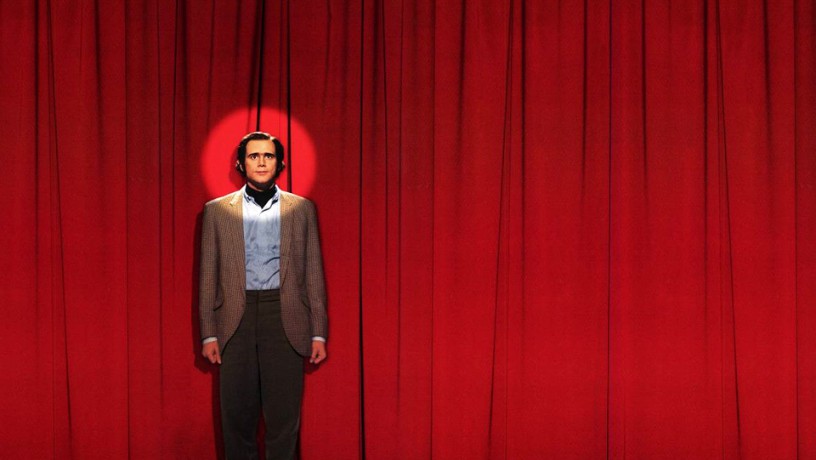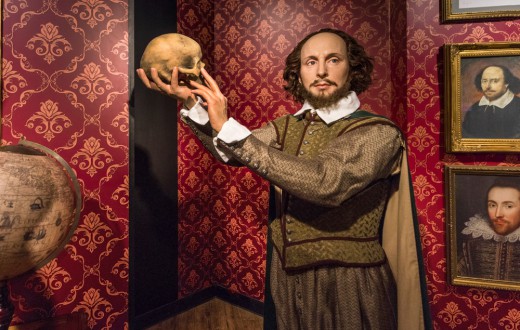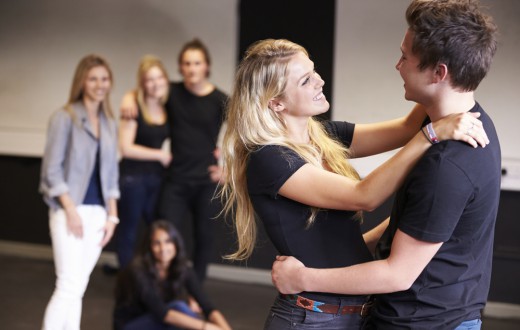Many stand-up comedians have become successful actors. This, of course, includes roles in comedies, but also includes dramas; great stand-up comedians like Whoopi Goldberg and Robin Williams went on to win Academy Awards (Goldberg for Ghost in 1990; Williams for Good Will Hunting in 1998). Sometimes, a comic’s break into acting could be attributed to them merely cashing in on their popularity. However, these two forms of performance may not be as different as they seem, and it is logical that skills in one area could translate to skills in the other.
Here’s a few reasons why stand-up comedy skills are great for any actor.
Audition Courage
An actor’s work, whether for stage or camera, takes place largely in an ensemble. Great actors must play well off their scene partners. However, an audition room tends to remove that aspect completely and put all the pressure on an actor to showcase their talents alone. This can be intimidating for many actors, and it makes sense; auditions are very awkward and strange for an actor. Stand-up comedians, however, are used to performing alone in front of a small group of people. They develop a comfort with that sort of pressure. Carrying that confidence over to an audition room could give an actor the edge over less confident performers!
Put Your Personality First
Many actors get caught in a headspace of transformation. They feel a desire to be transformative with their performances. They want to disappear into roles via accents, exaggerated mannerisms, etc. While this can be useful in some roles, most casting directors will be convinced whether to cast you or not based on who YOU are. The personality and vibe you put forward speaks volumes. In stand-up, comics must put their personality first. Whether they’re telling personal stories or joking about topics that interest them, a great comic has material that only they can tell. Being yourself, and quickly portraying yourself to strangers, is extremely important to both networking actors and stand-up comedians.
Diverse Pursuits
As a working actor, when it rains, it pours. Especially when they’re first starting out, it’s rare for actors to be working at a comfortable, consistent rate. More realistically, they will go through extremely busy periods and extremely dead periods. Having a few types of performance in your tool belt will help keep you consistently busy. A few months off from acting could make an actor rusty – but if that actor is performing stand-up comedy during those months, they will have all the momentum they need. In addition to keeping busy, it’s also great to have diverse pursuits when trying to network. The old adage, “it’s not about what you know, it’s about who you know” is extremely true. Trying stand-up will introduce you to many new people that you may not have met otherwise! Some of them will be other actors, some will be career comics, and some will even be writers or directors.
Beefed-up Special Skills
The “special skills” section of your resume is an opportunity to spark something in a casting director’s mind. It’s advantageous to put whatever you can in there. Having “stand-up comedy” on your acting resume could make you stand out in a positive way. Most people love comedy, and most people in the industry know what it takes – persistence, hard work, and thick skin. When you know your resume will be one in a tall stack, anything you can do to look better could get you work!
Practice Commanding a Space
As a beginning actor, many of your acting roles may be only a few lines. It’s important to take these roles seriously, but you might not have anything to sink your teeth into, and when it’s time for you to deliver big acting moments, you want to be ready. In stand-up comedy, performers must captivate an audience for their entire set. They cannot be too one-note, and must find nuance to their emotions. They cannot speak too fast or too slow. The immediate feedback of the audience is an incredible gift, as it helps performers learn what works. It is, in a way, a free acting monologue workshop with live, clear feedback. Many actors will try to “ham up” or overplay the emotion of a scene; stand-up comics know that honest storytelling resonates much better.
Thick Skin
Many people trying to work as actors were the prodigy of their high school or college theater department. Some early success or inspiration caused them to pursue acting in the first place. However, working as an actor requires perseverance despite constant rejection. It will beat you up if you let it. Stand-up comedy is the same way. All stand-up comics must deal with dead audiences, hecklers, bad shows, and bleak nights while not only making peace with it, but continuing to try again. Stand-up comic and actor Ray Romano said, “After performing stand up, performing in an audition situation was a piece of cake. I mean, what could these people ever say to hurt my feelings that some drunk in the city hasn’t already said?”
If you’re an actor considering trying stand-up, or a comic considering trying acting, you should do it! While the skills are not all the same, it is a great thing for any performer to try different challenges to get better. There’s probably an open mic night somewhere in your neighborhood.
Give it a try!







